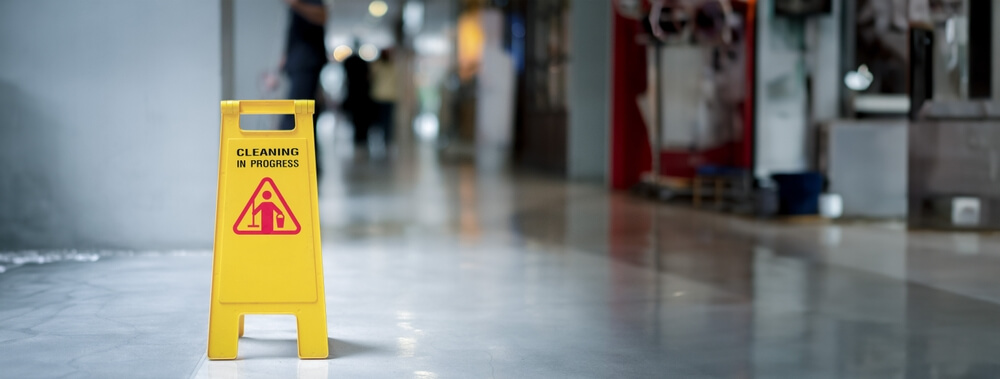Sustainable facility maintenance is not only good for the environment but also a smart business strategy. By adopting energy-efficient systems, water-saving fixtures, green cleaning products, and recycling programs, commercial buildings can reduce their environmental impact, lower operational costs, and enhance their reputation as eco-conscious businesses. Utilizing these practices is a step towards a greener, more sustainable future for the commercial real estate sector.
This article explores key eco-friendly strategies, such as energy-efficient lighting, water-saving fixtures, and green cleaning products, that can help businesses meet sustainability goals.
The Role of Sustainable Maintenance
Sustainable facility maintenance practices include a range of strategies that are designed to reduce the environmental impact of building operations. This includes improving energy efficiency, minimizing waste, and enhancing the health and well-being of occupants. By implementing these practices, commercial facilities can:
- Reduce their carbon footprint
- Lower operational costs
- Improve the indoor environment for occupants
- Meet regulatory requirements and avoid penalties
- Boost their corporate image among eco-conscious consumers
Key Practices for Eco-Friendly Maintenance
Energy-Efficient Lighting
Switching to LED lighting or installing motion sensors can significantly reduce electricity consumption in commercial spaces. These lighting systems use less power, have a longer lifespan, and produce less heat, making them a cost-effective and eco-friendly option.
Water-Saving Fixtures
Low-flow toilets, automatic faucets, and water-efficient irrigation systems are essential for reducing water consumption. These fixtures help businesses lower utility costs and contribute to water conservation, which is especially important in areas prone to drought.
Green Cleaning Products
Common, everyday cleaning products often contain harmful chemicals that can pollute indoor air quality and water systems. Switching to eco-friendly alternatives that are biodegradable, non-toxic, and safe for both employees and the environment is a simple yet effective way to reduce a facility’s environmental impact.
Smart HVAC Systems
Smart HVAC systems allow for accurate temperature control, reducing energy waste. They can also automatically adjust heating and cooling based on factors like occupancy and weather conditions, optimizing energy use and maintaining an ideal indoor environment.
Recycling and Waste Reduction Programs
Implementing robust recycling programs and reducing overall waste generation is vital for sustainable maintenance. Encouraging occupants to recycle, compost, and reduce paper usage can significantly reduce a building’s environmental footprint.
Technology’s Role in Sustainable Facility Maintenance
Advancements in technology are critical to the success of sustainable facility maintenance. Smart building systems, energy management tools, and IoT devices provide real-time insights into a facility’s resource use, allowing for data-driven decision-making that enhances efficiency and reduces waste.
Smart Lighting and HVAC
Automated systems that adjust based on occupancy or time of day can drastically reduce energy consumption. Buildings that adopt these technologies often see a significant reduction in operating costs and carbon emissions.
The Financial Benefits of Sustainable Maintenance
Although sustainable maintenance practices may require an initial investment, they often lead to substantial long-term savings. Energy-efficient systems, water-saving fixtures, and green cleaning products can reduce utility costs, while tax incentives and rebates can help offset the upfront expenses. Additionally, buildings with sustainable practices tend to have higher property values and attract eco-conscious tenants, further contributing to financial gains.
Achieving Sustainability Certifications
Many commercial buildings pursue sustainability certifications like LEED to demonstrate their commitment to environmental responsibility. Sustainable maintenance practices are critical to achieving and maintaining these certifications, as they directly contribute to a building’s energy efficiency, water usage, and indoor air quality.
Facility Maintenance for Commercial Buildings from Summit Property Group
At Summit Property Group, we are committed to providing top-tier integrated facility maintenance services tailored to your unique needs. Whether you’re managing commercial properties, tenant maintenance, or condo and strata consulting, our expert team ensures seamless communication and superior service delivery.
With decades of experience, we specialize in customized, cost-effective solutions, optimizing efficiency through data-driven program analysis and in-house contractor management. Our streamlined processes ensure your facility maintenance needs are completed on time, within budget, and with utmost satisfaction.

